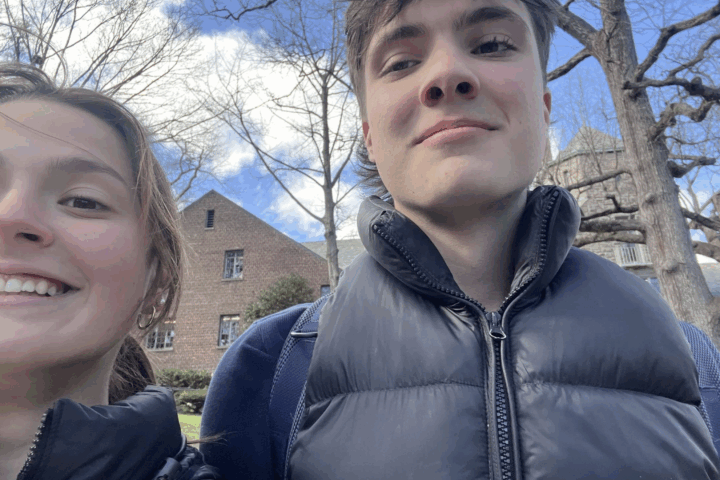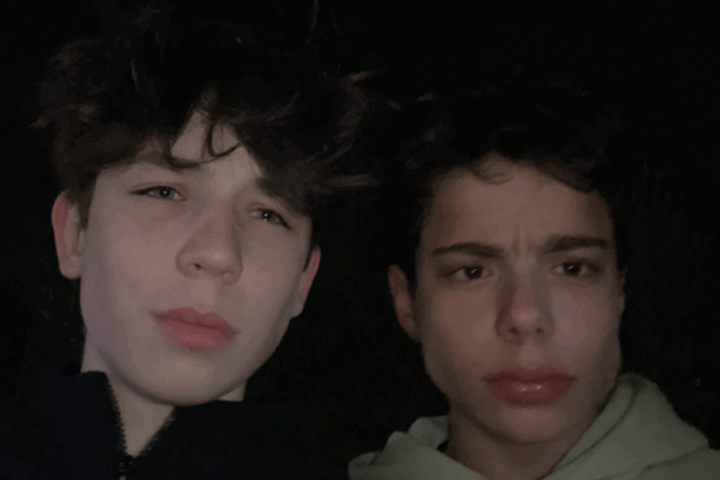In 10th grade, I visited the neighborhood of Astoria for the first time on a journalism assignment. The assignment was to go explore a neighborhood in New York that we had never been to before and write about it. As a Brazilian living in New York, it was a shame to say that I had not yet visited Astoria, so I decided to finally do it.
After getting off the subway to Astoria one Tuesday morning, I walked into Rio Market, a Brazilian supermarket that contained every snack, drink and candy from my childhood. I spent hours browsing through their selection while allowing nostalgia to travel through me. I was also committed to interviewing the store owner, but given that this was one of my first times reporting, building up the courage to walk up to the store owner was a task. It took countless walks up and down the aisles as well as my frustrated mother to eventually nudge me over to the counter and introduce myself. As soon as I uttered a few words in portuguese, the cashier’s face immediately lit up. I was home.
Up until then, I had not realized how much I had missed the warmth of Brazilians, the feeling of closeness I felt with the cashier despite not knowing her previously and how refreshing it felt to speak in Portuguese with a stranger. I felt like I was a carioca again and listening to the cashier tell her story, I felt myself reaching into myself and forcefully pulling out the Brazilian in me that had been repressed all these years.
It is through journalism that I healed my relationship with my home country. It was through journalism that I investigated Jair Bolsonaro’s presidency, the Amazon fires, Brazil’s military dictatorship, Brazilian literature, its culture and its politics. The articles that I wrote about Brazil allowed me to fill in the gaps that had been formed from years lost of learning.
Through my interview with Director Paula Sachetta that directed a movie about those that had been tortured during the dictatorship, I learned how various figures from the military dictatorship still live freely today despite having tortured innocent activists and how Brazilians never properly acknowledged their cruel past. Through my interview with Liszt Vieira, a former member of a leftist guerrilla group in Brazil, combined with my interview with Pedro Guimarães, the son of a military general, I learned about how differently João Goulart was perceived and how divided the country was. Through Teca Pontual, I learned about the “generation of ignorance” which is how she refers to the generation of my parents that were born into an apolitical society that consider themselves exempt from the nation’s politics. It is through these interviews that I began to foster a relationship with Brazil.
Brazilian journalist Eliane Brum writes in the introduction to her book The Collector of Leftover Souls that, “a news story also demands an initial radical movement: crossing the wide street of yourself. This is perhaps the most profound and also the hardest act. It demands that you uninhabit yourself to inhabit the Other, the world that is the Other.” Writing about Brazil forced me to inhabit the pain that Teca Pontual felt as she watched Bolsonaro praise the general that tortured her grandmother, the anger expressed by Liszt Vieira when I told him that I heard from Pedro Guimarães that João Goulart was a communist and the fulfillment felt by Paula Sacchetta when a student that had just watched her documentary asked Sacchetta what she should do now given that she learned about all these figures that committed human rights abuses. I now carry all those feelings inside of me and I feel them strongly whenever I hear about Bolsonaro, Goulart or Harry Shibata, a doctor that tortured patients during Brazil’s dictatorship.
Every interview is a piece of the string that ties myself closer to Brazil, its people, its diversity, its stories and its culture. It was journalism that brought me to the level of intimacy I feel with Brazil at this moment.
As my time in the Fieldston News comes to an end, I want to thank journalism for making that happen. More importantly, however, I want to thank Mr. Montera for pushing me to always interview more Brazilians, introducing me to Eliane Brum, encouraging me to read Clarice Lispector, allowing me to always write about Brazil in the Fieldston News and supporting me along my path to reclaim my relationship with Brazil.





